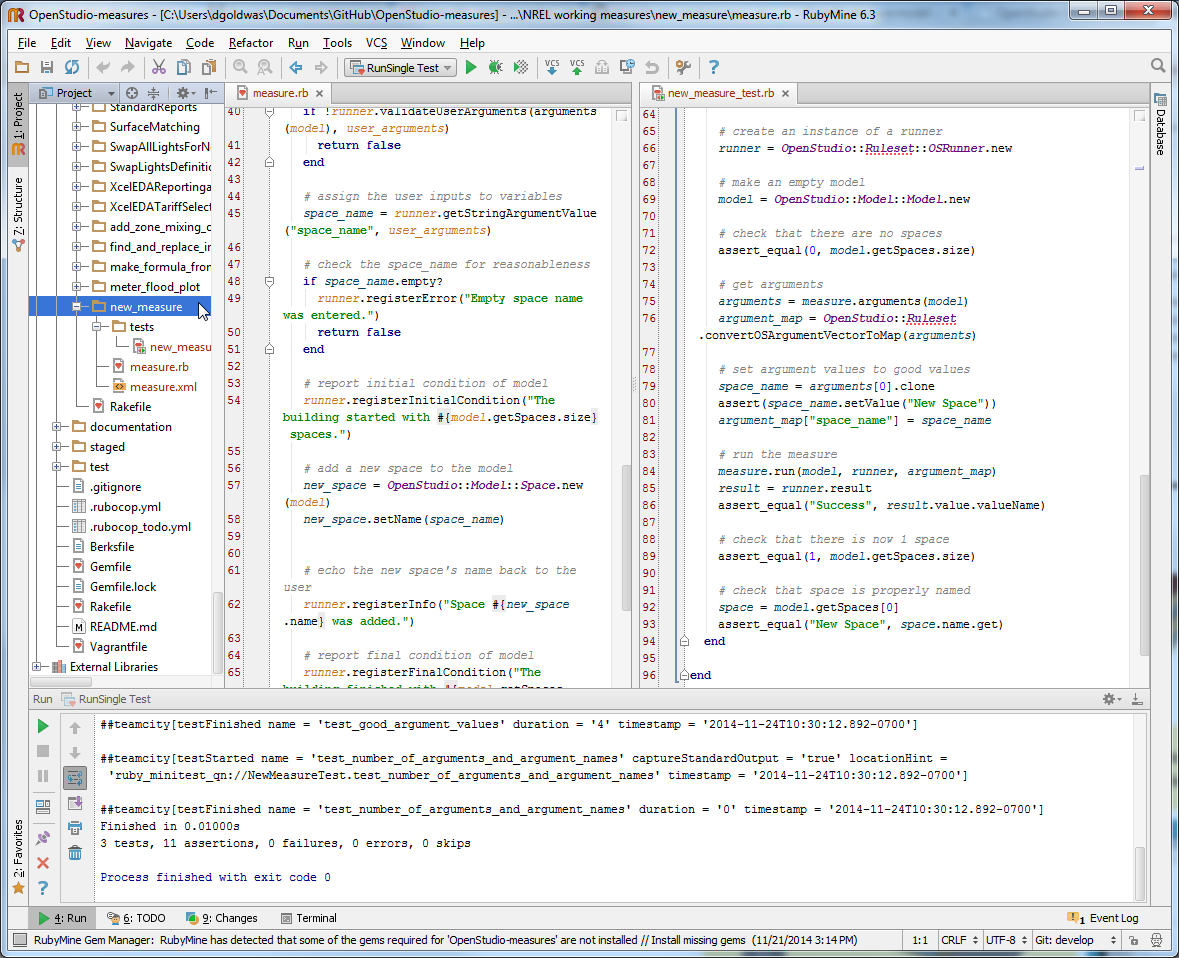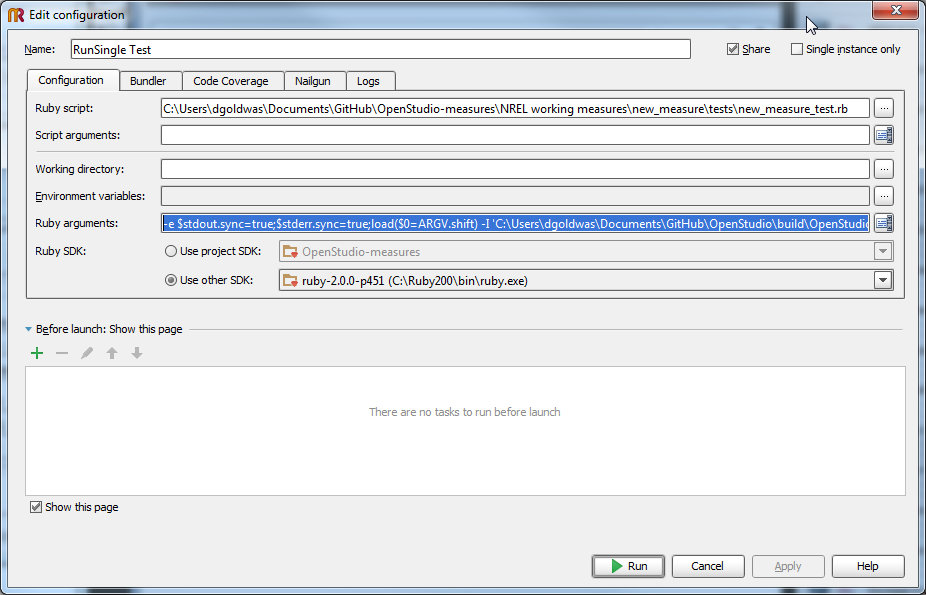Is there a best or preferred workflow for complex OpenStudio Ruby script development including interactive debugging and execution tracing?
I am developing measures for OpenStudio on a Windows 8.1 platform using Ruby. I have followed the Measures Writing Guide and this was very helpful to get started and am now moving to an extended integrated workflow. I have set up the Eclipse IDE with the Dynamic Language Toolkit (DLTK) for editing scripts and to check Ruby syntax. Does anyone have experience using this or another IDE to interactively debug and trace script execution and to provide OS library Ruby bindings completions? Is there another approach that allows interactive development and debugging? Is there a best or preferred workflow for complex script development?
Question update[11/25/14]
I have now installed RubyMine v7.0 and created a full measure case folder. I set the configuration options following the answers provided, adapted to my local installation. The configuration dialog that I located looks similar to the answer dialog but was in a different location at >Run>Edit Configurations>Defaults>Ruby. Maybe this is a RubyMine version issue or there is another similar dialog somewhere else? The parameters used are shown below and include the installed dev version of OS 1.5.2. I also have the source files installed and I have tried both “-e $stdout.sync=true;$stderr.sync=true;load($0=ARGV.shift) -I ‘C:\Program Files (x86)\OpenStudio 1.5.2\Ruby’ “ and “-e $stdout.sync=true;$stderr.sync=true;load($0=ARGV.shift) -I ‘C:\Program Files (x86)\OpenStudio 1.5.2\Ruby’ -I 'D:\OpenStudio\10 Local Repositories\OpenStudio\developer\ruby' ” for the Ruby arguments. It appears that the OpenStudio:: references are still unresolved. I have searched RubyMine help but not found how to add external libraries to the RubyMine Project. What other settings are needed to resolve the OS references? Thanks


 This is a screenshot of a new measure opened in Ruby Mine. Notice how there is a "tests" folder next to measure.rb. I have the newmeasuretest.rb file open in the right. That is what I run to test the measure. I don't call the measure directly. This will pass it a model (or in this case make a new model) along with the user argument values.
This is a screenshot of a new measure opened in Ruby Mine. Notice how there is a "tests" folder next to measure.rb. I have the newmeasuretest.rb file open in the right. That is what I run to test the measure. I don't call the measure directly. This will pass it a model (or in this case make a new model) along with the user argument values. Under the run menu you can edit and create configuration. This shows my configuration. The only one I change for each test is the "Ruby script" which points the specific test file I'm running. The other values help it to find OpenStudio and Ruby. You can setup various ruby versions under "File/Settings/Ruby SDK and Gems". The screenshot above is setup to use my developer build of OpenStudio, but it is perfectly fine to use this workflow with an installed version of OpenStudio. In other words, any user can write and test ruby scripts without having to compile the software.
Under the run menu you can edit and create configuration. This shows my configuration. The only one I change for each test is the "Ruby script" which points the specific test file I'm running. The other values help it to find OpenStudio and Ruby. You can setup various ruby versions under "File/Settings/Ruby SDK and Gems". The screenshot above is setup to use my developer build of OpenStudio, but it is perfectly fine to use this workflow with an installed version of OpenStudio. In other words, any user can write and test ruby scripts without having to compile the software.


Thank you all very much for your very fast and thorough answers. I will install RubyMine and try these approaches and come back with any questions.
The ruby arguments input should help it to find OpenStudio.
-e $stdout.sync=true;$stderr.sync=true;load($0=ARGV.shift) -I 'C:\Program Files (x86)\OpenStudio 1.5.2\Ruby'
I don't think I mentioned it before, but if you use command line to run tests, you can create a file at a path similar to this "C:\Ruby200\lib\ruby\site_ruby\openstudio.rb" with the following content.
require 'C:\Program Files (x86)\OpenStudio 1.5.2\Ruby\openstudio.rb'
Paths to openstudio would be different when using newer 64bit version